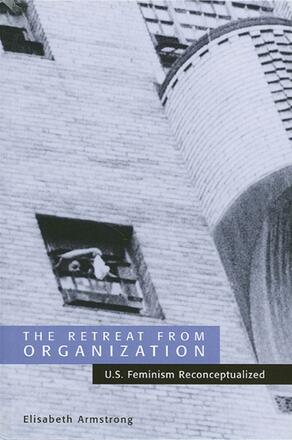
The Retreat from Organization
U.S. Feminism Reconceptualized
Alternative formats available from:
Offers critical assessments of feminism from the 1960s to the present.
Description
Using books, articles, unpublished letters, political manifestos, posters, and other such ephemeral remainders, The Retreat from Organization offers critical assessments of feminism from the 1960s to the present. These materials reveal paths left unexplored and organization efforts still unfinished to suggest new possibilities for present feminist politics. Debates about the second wave women's movement revolve around the identity and the identification of the subject of feminism and rarely ask, as this book does, how feminism operates as a collective movement. Armstrong attempts to complicate how we disagree over feminism by asking questions about identity and organization, the subject and the movement, and ultimately, what "feminism" should be in our present context of passionate indeterminacy.
Elisabeth Armstrong is Assistant Professor of Women's Studies at Smith College.
Reviews
"The author regards political organization as cause and effect and notes correctly a dialectical relationship between organization and theory and practice. What is most insightful is how she discusses the common epistemological assumptions of opposing theories and focuses on the extremely interesting and surely relevant question of how feminists disagree." — Chana Kai Lee, author of For Freedom's Sake: The Life of Fannie Lou Hamer
"The decision to talk about political practice, rather than endlessly to dissect the subject of that practice, is wonderfully refreshing." — Barbara Foley, author of Radical Representations: Politics and Form in U.S. Proletarian Fiction, 1929–1941